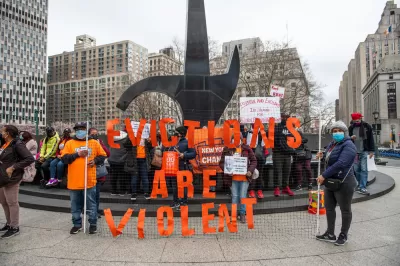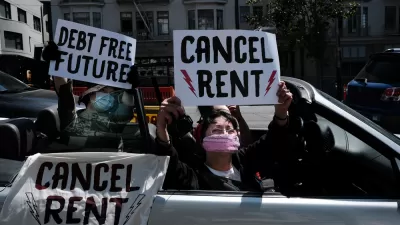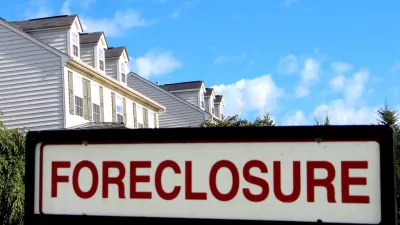With relatively few strings attached to the $350 billion in funds states and municipalities will receive, the door is wide open for governments to make a dent in their housing needs. But will they?

When President Joe Biden signed his $1.9 trillion coronavirus relief package into law in March, it came with significant funding to stanch the housing emergencies created by the pandemic. The American Rescue Plan Act (ARPA) has $21.5 billion for emergency rental assistance, $10 billion for mortgage relief, $5 billion for housing choice vouchers, $5 billion for homelessness services and shelter acquisition, $750 million for housing assistance for Native Americans and Native Hawaiians, and $100 million for rural housing assistance.
But it turns out that is only a fraction of the funding in ARPA that could be used for affordable housing.
The act contains more than $350 billion for states and local municipalities—a fairly open-ended pot of money that can be used to fund a huge swath of needs, such as development, social safety net, education, public health, and more. In mid-May, the U.S. Department of the Treasury published guidance for how states and cities can spend the billions coming their way, and it makes clear that affordable housing development, housing vouchers, housing counseling, and other programs are approved uses when spent in Census tracts with high concentrations of low-income residents or on people disproportionately impacted by the pandemic.
Preservation Working Group, a Pittsburgh coalition of housing advocates, developers, public health workers, and others, is lobbying Pennsylvania state officials to use ARPA funds for affordable housing and to bolster the participation of developers of color in the affordable housing industry. The coalition faces something of an uphill battle, with a ...
FULL STORY: Rescue Plan has Billions Available for Housing, Advocates Urge Officials to Take It

Montreal Mall to Become 6,000 Housing Units
Place Versailles will be transformed into a mixed-use complex over the next 25 years.

Planetizen Federal Action Tracker
A weekly monitor of how Trump’s orders and actions are impacting planners and planning in America.

DARTSpace Platform Streamlines Dallas TOD Application Process
The Dallas transit agency hopes a shorter permitting timeline will boost transit-oriented development around rail stations.

Without International Immigrants, the Rural US Population Would Be Falling 58%
Census data shows that population growth in rural areas is due in large part to international migrants.

Dead End: Nine Highways Ready for Retirement
The Freeways Without Futures report describes the nation’s most promising highway removal proposals.

Congressman Proposes Bill to Rename DC Metro “Trump Train”
The Make Autorail Great Again Act would withhold federal funding to the system until the Washington Metropolitan Area Transit Authority (WMATA), rebrands as the Washington Metropolitan Authority for Greater Access (WMAGA).
Urban Design for Planners 1: Software Tools
This six-course series explores essential urban design concepts using open source software and equips planners with the tools they need to participate fully in the urban design process.
Planning for Universal Design
Learn the tools for implementing Universal Design in planning regulations.
City of Mt Shasta
City of Camden Redevelopment Agency
City of Astoria
Transportation Research & Education Center (TREC) at Portland State University
City of Camden Redevelopment Agency
Municipality of Princeton (NJ)
Regional Transportation Commission of Southern Nevada





























